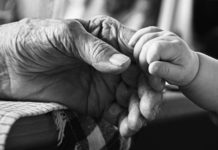The Soteria Project.
During the 1970s, the head of schizophrenia studies at the NIMH, Loren Mosher, conducted an experiment that compared treatment in a homelike environment (called...
Alternatives Beyond Psychiatry
Alternatives Beyond Psychiatry is a "book of alternatives around the world. (Ex-) users and survivors of psychiatry, therapists, psychiatrists, lawyers, social scientists and relatives report...
Are Students Benefiting From the Growth Mindset Model?
Results from two meta-analyses reveal shortcomings with the growth mindset theory as applied in schools.
Paxil Progress
Paxil Progress is a forum for people engaged in withdrawal from Paxil. It also offers adverse drug reaction reporting, FDA Warnings, published withdrawal studies,...
The “I Am Not The Butcher” Speech
On Thursday I had an interaction with a psychologist where I basically said, "I am not sure I want to attend a workshop you...
Green Space in Childhood May Protect Against Adult Mental Health Issues
A new study suggests proximity to green space as a child is linked to lower rates of mental health issues in adulthood.
From Self Care to Collective Caring
As a trauma survivor growing up in various adolescent mental health systems, I never learned any useful self-care tools or practices. I was taught that my current coping skills (self-injury, suicidal behavior, illicit drug use) were unacceptable, but not given any ideas as to what to replace them with. No one seemed to want to know much about the early childhood traumas that were driving these behaviors. Instead, I collected an assortment of diagnoses. I was told that I would be forever dependent on mediated relationships with professionals, and an ever-changing combination of pills. The message was that my troubles were chemical in nature and largely beyond my control.
Young Transgender Women Burdened with High Rates of Psychiatric Diagnoses
New research published in JAMA Pediatrics reveals that transgender women have more than double the prevalence of psychiatric diagnoses than the general US population. The study found that the women, who had been assigned male at birth and now identified as female, had a high prevalence of suicidality, post-traumatic stress disorder, substance abuse, generalized anxiety and major depressive disorder.
Study Explores Māori Community’s Multifaceted Understanding of “Psychosis”
A new study explores how “psychosis” and “schizophrenia” are viewed within the Māori community in New Zealand.
Increasing Physical Activity in Schools May Improve Mental Health
A new article suggests integrating physical activity throughout the day may help to address the mental health of students.
Most People with Common ‘Mental Disorders’ Get Better Without Treatment, Study Finds
A new study suggests that most people diagnosed with depressive, anxiety, and substance abuse disorders recover without treatment within a year of diagnosis. “This...
Study Finds Increasing Minimum Wage can Decrease Child Maltreatment
Increasing the minimum wage - even modestly - can lead to less cases of child abuse in the home.
Review Reinforces Social Connection as Protective Health Factor
Is a lack of social connection in the US harmful to health? In a review of social connection and health literature, researcher calls for a societal shift in values towards interdependence.
Research Finds Parents’ Trauma May Impact Children’s Health
Study uncovers some of the intergenerational consequences of adverse childhood experiences (ACEs).
School Discipline is Racially Biased and Increases Misbehavior
School discipline that punishes minor misbehavior may increase adolescents’ misconduct and lead to racial inequalities in school discipline.
Six Ways You Can Really Help Prevent Suicide
The first time I tried to kill myself, I was 14. I won’t go into the indignity of being involuntarily locked up, time after time, until I satisfactorily convinced the staff that I wouldn’t harm myself or attempt suicide again. (I was lying.) The system taught me to lie, to hide my suicidal feelings in order to escape yet another round of dehumanizing lock-ups and “treatments.”
Psychologists Argue for Decolonial Approach to Global Poverty
Individualist psychological models of poverty pathologize poor communities, decolonial approaches that emphasize context and interdependence may be more sustainable.
Psychology Needs New Concepts and Healing Models for Racial Trauma
Contemporary empirical research explores new ways to conceptualize and heal racial trauma through anticolonial and sociohistorical lenses.
Remembering Kate
I first wrote this story of my mother back in 2000, six years after her death. I share it today as my first entry on this important blog, in the hope that people will see that there is another way. In future entries I want to share with you why I don't believe in mental illness and the use of psychotropic medications, and how I believe people who are experiencing emotional distress can get well, stay well, and live the lives they want to live.
Loneliness and Mental Illness
Based on interviews with 7,461 adults randomly selected from the Adult Psychiatric Morbidity Survey in England, researchers found that interventions addressing maladaptive social cognition...
Providing Sanctuary
In these days with limited access to mental health facilities, and when in-patient or out patient treatment might be focused on invasive treatments and not on recovery, you may be tempted to "provide sanctuary" for a friend or family member who is experiencing serious mental health challenges. Many of you have probably already done this.
Locus of Control Less Associated with Anxiety in Collective Societies
Locus of Control (LOC), a measure of the degree to which one perceives control of one's life to be internally- vs. externally-determined, was reviewed...
The Sunrise Center: A Place For Adults To Recover From Psychiatric Drugs
Many people now using psychiatric drugs have been convinced or forced to use them while being treated in the mental health system. A good number of people are eager to stop using these drugs, but are often discouraged by others from doing so. Many psychiatric survivors believe that they can never stop using these drugs because they were told they would need to use them the rest of their lives. We hope the Sunrise Center will become a catalyst for a movement of people creating places for people who want to stop using psychiatric drugs.
Psych Patients Who Resist Stigma Do Better
A new study in press in the Journal of Schizophrenia Research finds that patients who actively resist the negative stigma associated with mental health...
BPS Releases Review of Alternatives to Antipsychotics
BPS releases report encouraging behavioral interventions for people with dementia, rather than antipsychotics




















